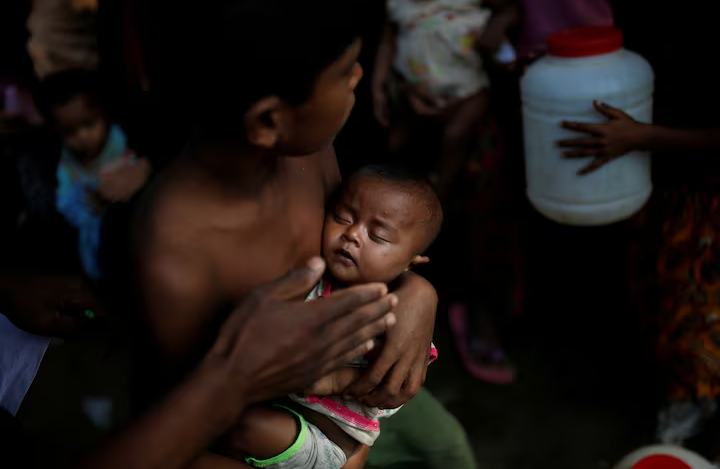The United Nations’ World Food Programme (WFP) is set to reduce food aid for over one million people in Myanmar starting next month due to a severe funding shortage. This development comes at a time when the country is already grappling with rising conflict, displacement, and food insecurity, leaving many vulnerable communities on the brink of starvation.
In a statement released on Friday, WFP warned that the cuts would severely impact groups that rely entirely on its assistance for survival. The agency noted that food aid needs have surged due to ongoing violence and restricted access to affected areas, making the situation even more dire.
A Worsening Humanitarian Crisis
Myanmar has been in turmoil since the military seized power in early 2021, overthrowing a democratically elected government. Since then, the country has been engulfed in conflict, leading to mass displacement and a sharp decline in food production. UN estimates indicate that nearly 20 million people require humanitarian assistance, with 15.2 million facing acute food insecurity—a staggering one-third of the nation’s population.
The crisis is not limited to Myanmar. WFP has also faced funding shortages affecting its operations in Afghanistan, Bangladesh, and several African nations. In Bangladesh’s Cox’s Bazar, where more than a million Rohingya refugees reside, food rations are set to be halved to just $6 per person per month from April, further exacerbating an already desperate situation.
The Impact of Food Aid Cuts
WFP estimates that it needs $60 million to sustain food distribution in Myanmar for the rest of the year. The cuts will particularly impact 100,000 internally displaced people, including minority Muslim Rohingya communities, who have little to no access to alternative food sources.
Adding to the crisis, Myanmar’s ongoing armed conflict has made agricultural production increasingly difficult. Large areas of farmland have been contaminated with landmines and unexploded ordnance, while forced conscription by the military has led to a shortage of farmworkers. As a result, food shortages are expected to intensify, particularly during the lean season from July to September.
Lack of Transparency and Global Response

The military junta in Myanmar has been accused of suppressing information regarding the country’s food crisis. Reports suggest that authorities have pressured researchers not to collect data on hunger levels and have restricted aid organizations from publicly discussing the crisis.
While WFP did not specify whether its funding challenges were linked to global foreign aid reductions, past cuts by major donors—such as the Trump administration’s decision to reduce U.S. foreign aid—may have played a role.
As the situation worsens, humanitarian organizations are calling for urgent international support to prevent a full-blown famine. The fate of millions now depends on whether the global community steps up to fill the funding gap before it’s too late.



